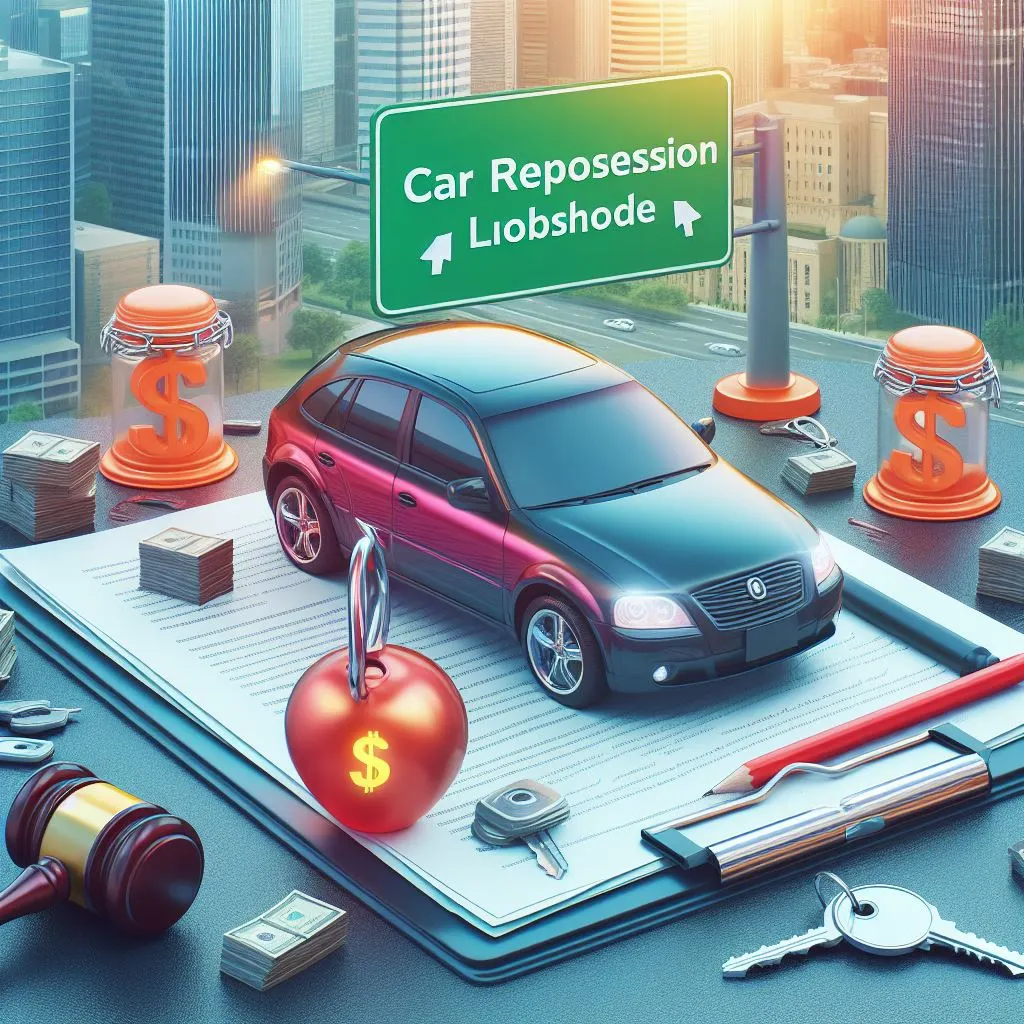Facing car repossession can be an overwhelming experience, leaving many individuals searching for ways to protect their vehicles and financial stability. However, there are certain car repossession loopholes that, when understood, might provide temporary relief or even a long-term solution. These loopholes allow borrowers to challenge or delay repossession under specific circumstances, giving them time to regain control of their financial situation.
Understanding these strategies requires a deep dive into legal frameworks, lender obligations, and borrower rights. Not all repossession cases are straightforward, and mistakes made by the lender during the process can sometimes work in the borrower's favor. Leveraging these loopholes requires knowledge, preparation, and in some cases, professional assistance to ensure compliance with the law.
This comprehensive guide will break down common car repossession loopholes, highlight potential legal strategies, and answer frequently asked questions to help you navigate this challenging situation. Whether you're currently facing repossession or simply want to be prepared for the future, this article will arm you with the information you need to protect your rights and your vehicle.
Table of Contents
- Understanding Car Repossession
- What Are Car Repossession Loopholes?
- Can Lenders Repossess Your Car Without Notice?
- How to Identify Illegal Repossession Practices?
- Does Your State Law Protect Against Repossession?
- How Important Is a Repossession Notice?
- Common Car Repossession Loopholes
- Challenging the Repossession Legally
- What If the Lender Violates Your Rights?
- Can Bankruptcy Stop Car Repossession?
- How to Negotiate with Your Lender?
- Essential Documents to Review
- Tips to Avoid Car Repossession
- Financial Planning for Future Security
- Seeking Professional Help
Understanding Car Repossession
Car repossession occurs when a lender takes back a vehicle due to non-payment or breach of contract terms. This process can happen quickly, often leaving borrowers with little time to react. Understanding how repossession works is crucial to protecting your rights and exploring potential car repossession loopholes.
Typically, lenders have the right to repossess a vehicle as soon as the borrower defaults on the loan. However, the exact terms and conditions vary based on the loan agreement and state laws. Familiarizing yourself with these details can help you anticipate and potentially prevent repossession.
What Are Car Repossession Loopholes?
Car repossession loopholes refer to specific legal or procedural errors that borrowers can use to delay or prevent the repossession of their vehicles. These loopholes often arise when lenders fail to follow the proper legal process or violate borrower rights during repossession.
Examples include failure to provide proper notice, illegal repossession practices, or failing to adhere to state-specific laws. By identifying these loopholes, borrowers can challenge the repossession process and potentially regain control of their vehicles.
Can Lenders Repossess Your Car Without Notice?
In many states, lenders are not required to provide advance notice before repossessing a vehicle. However, they must follow specific legal procedures during the process. If these procedures are not followed, it may open the door to car repossession loopholes that borrowers can leverage.
For example, if the lender breaches the peace during repossession, such as by entering private property without permission, the repossession may be deemed illegal. Borrowers should familiarize themselves with local laws to determine their rights in such situations.
How to Identify Illegal Repossession Practices?
Illegal repossession practices occur when lenders or their agents violate borrower rights during the repossession process. Common examples include:
- Entering locked or fenced property without permission
- Using threats or physical force
- Failing to provide proper documentation
- Selling the vehicle without following due process
If you suspect illegal practices, consult a legal professional to explore potential car repossession loopholes that could work in your favor.
Does Your State Law Protect Against Repossession?
State laws play a significant role in regulating car repossession procedures. Some states require lenders to provide written notice or allow a grace period before repossession. Others may limit the methods lenders can use to retrieve vehicles.
Understanding your state's specific laws can help you identify car repossession loopholes and challenge any violations. Research your state's requirements or consult with an attorney for personalized guidance.
How Important Is a Repossession Notice?
In some states, lenders are required to send a repossession notice before taking action. This notice informs the borrower of their default status and provides an opportunity to rectify the issue. Failure to send this notice may create a car repossession loophole that borrowers can use to delay or challenge the process.
Review your loan agreement and state laws to determine whether a repossession notice is mandatory in your case. If the lender fails to provide one, it could be grounds for legal action.
Common Car Repossession Loopholes
Several car repossession loopholes can help borrowers protect their vehicles. These include:
- Identifying procedural errors by the lender
- Challenging illegal repossession practices
- Leveraging state-specific protections
- Filing for bankruptcy to temporarily halt the process
- Negotiating with the lender for alternative solutions
Each of these strategies requires careful planning and legal knowledge to execute effectively.
Challenging the Repossession Legally
Legal challenges to repossession often involve proving that the lender violated state or federal laws. This can include failing to provide required notices, engaging in illegal repossession practices, or breaching the peace during the process.
Working with an experienced attorney can help you build a strong case and potentially leverage car repossession loopholes to your advantage.
What If the Lender Violates Your Rights?
If your lender violates your rights during the repossession process, you may have grounds to file a lawsuit. Common violations include:
- Failing to provide proper notice
- Using unlawful tactics to seize the vehicle
- Selling the vehicle without following proper procedures
Document any violations and consult a legal professional to explore your options.
Can Bankruptcy Stop Car Repossession?
Filing for bankruptcy can temporarily halt car repossession through an automatic stay. This legal protection prevents creditors from taking action against you while your bankruptcy case is pending.
However, this is not a permanent solution, and you may need to negotiate with your lender to retain your vehicle. Consult a bankruptcy attorney to determine if this option is right for you.
How to Negotiate with Your Lender?
Negotiating with your lender can be an effective way to avoid repossession. Possible solutions include:
- Requesting a loan modification
- Setting up a repayment plan
- Exploring refinancing options
Open communication and a willingness to cooperate can go a long way in resolving the issue.
Essential Documents to Review
When facing repossession, review the following documents to identify potential car repossession loopholes:
- Loan agreement
- Payment history
- Repossession notice (if applicable)
- State-specific repossession laws
These documents can provide valuable insights into your rights and options.
Tips to Avoid Car Repossession
Preventing repossession is often the best course of action. Here are some tips to help you stay on track:
- Budget carefully to ensure timely payments
- Communicate with your lender if you're facing financial difficulties
- Explore refinancing or loan modification options
Proactive measures can help you avoid the stress and financial impact of repossession.
Financial Planning for Future Security
Effective financial planning can help you avoid repossession and other financial challenges in the future. Consider creating a budget, building an emergency fund, and seeking professional financial advice to improve your long-term stability.
Seeking Professional Help
If you're struggling to navigate the repossession process, consider seeking professional help. Attorneys, financial advisors, and credit counselors can provide valuable guidance and help you explore potential car repossession loopholes.
Don't hesitate to reach out for assistance to protect your rights and secure your financial future.


Detail Author:
- Name : Ryan Treutel
- Email : amaya92@gottlieb.com
- Birthdate : 1978-01-30
- Address : 90252 Carlo Islands Raynorstad, CO 00575
- Phone : 970.679.4430
- Company : Beahan, Quigley and Pollich
- Job : Vice President Of Human Resources
- Bio : Rerum repudiandae repellendus deserunt quisquam. Accusantium vitae praesentium consectetur qui. Quo et dolorum suscipit magni doloremque dicta.